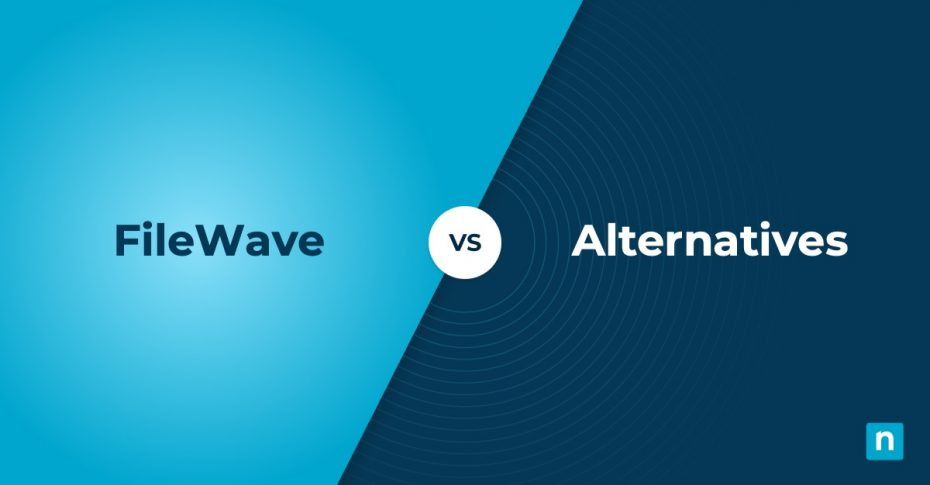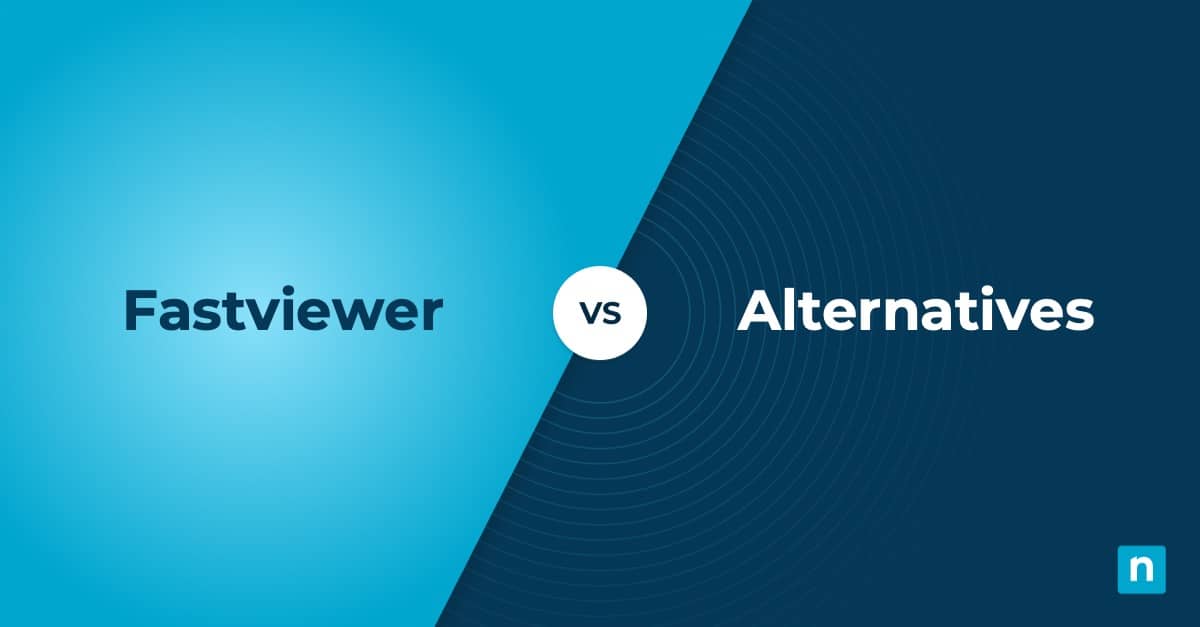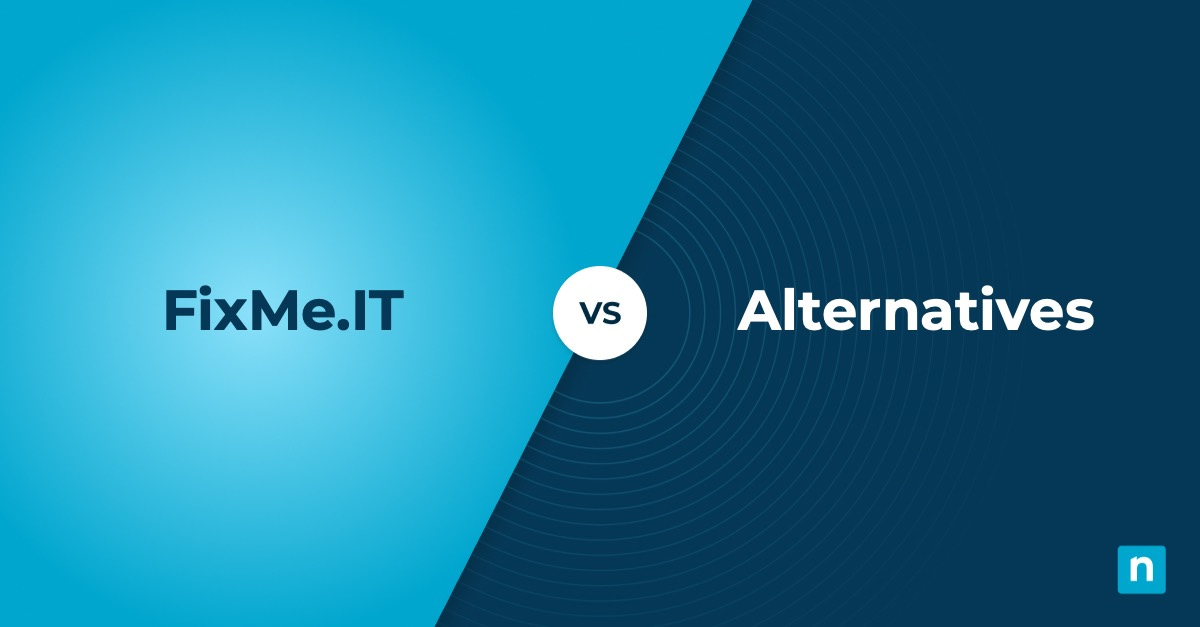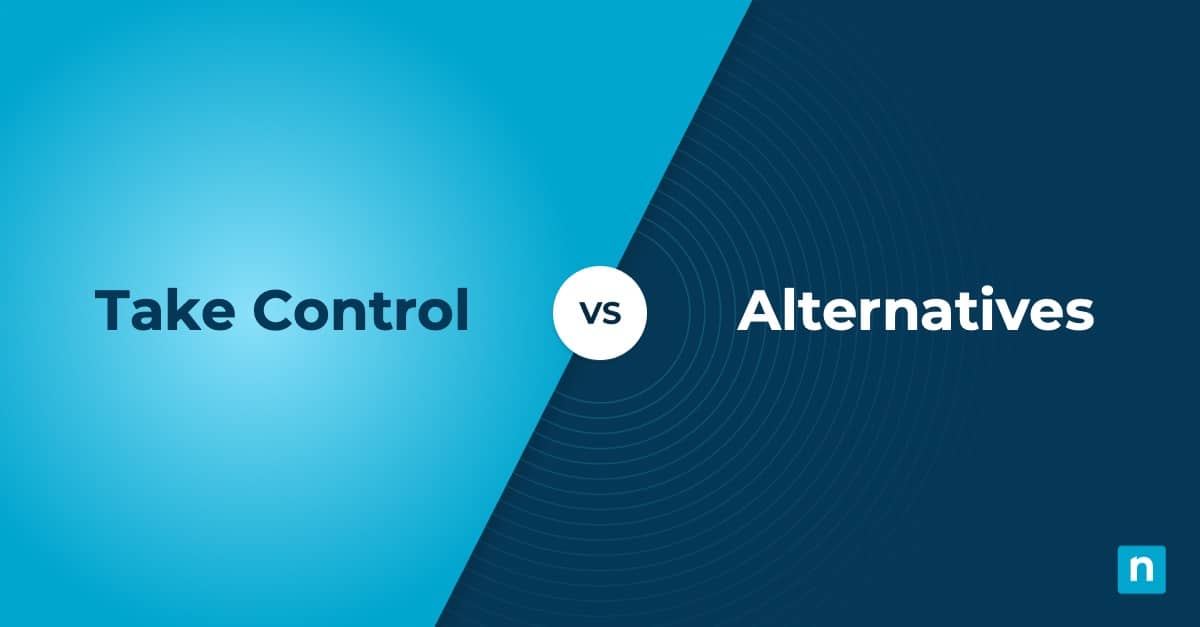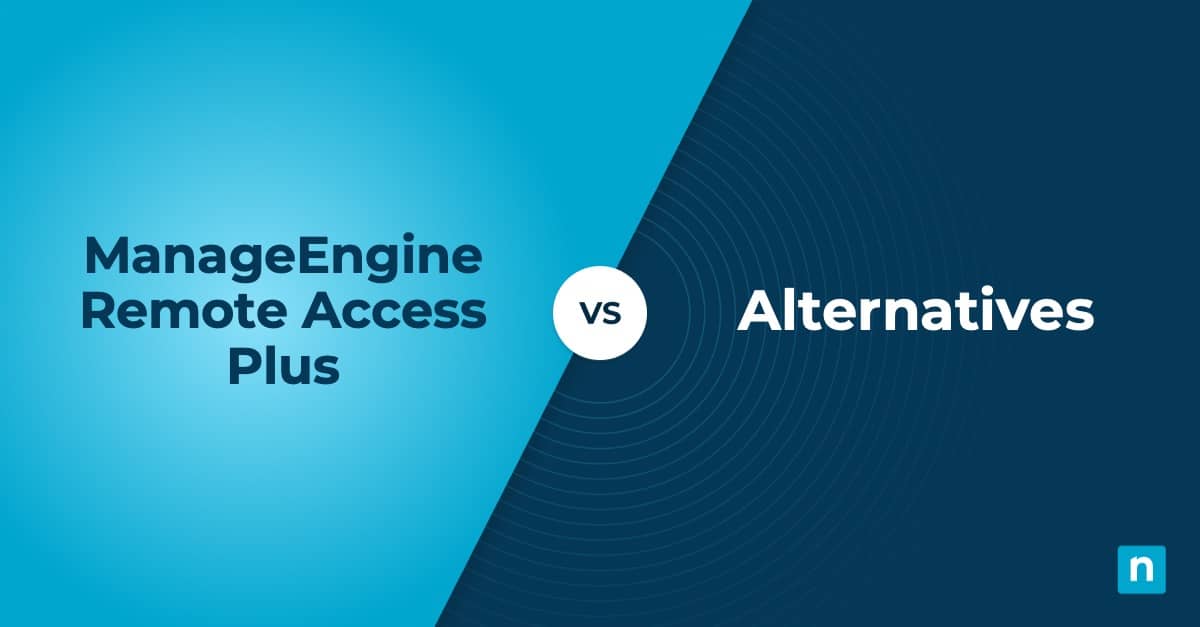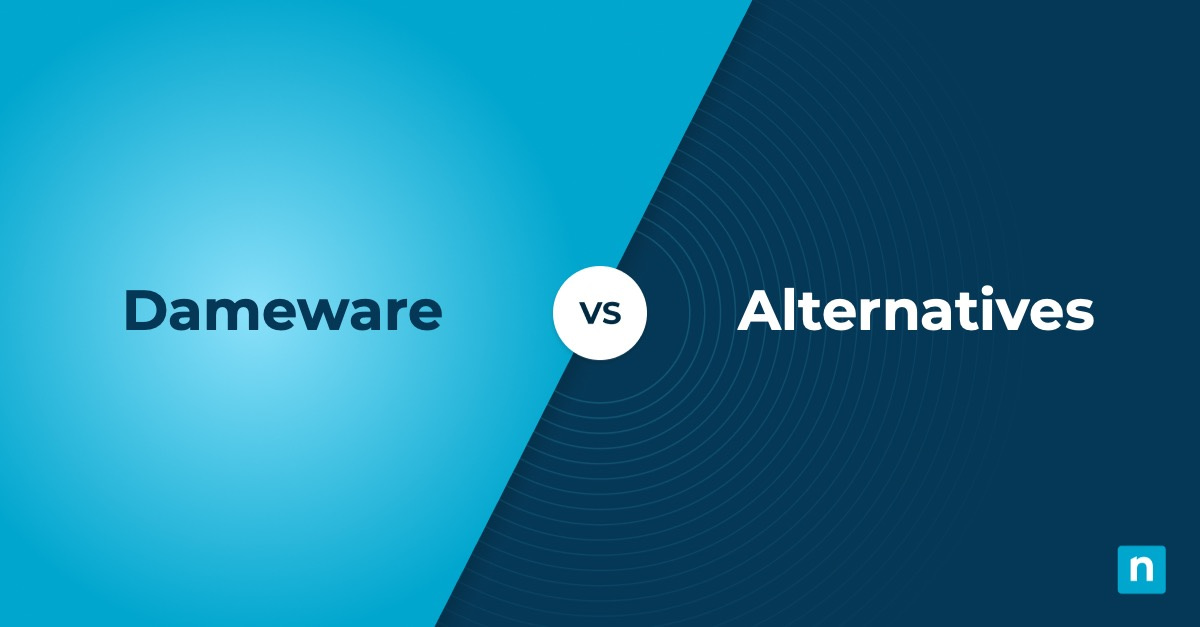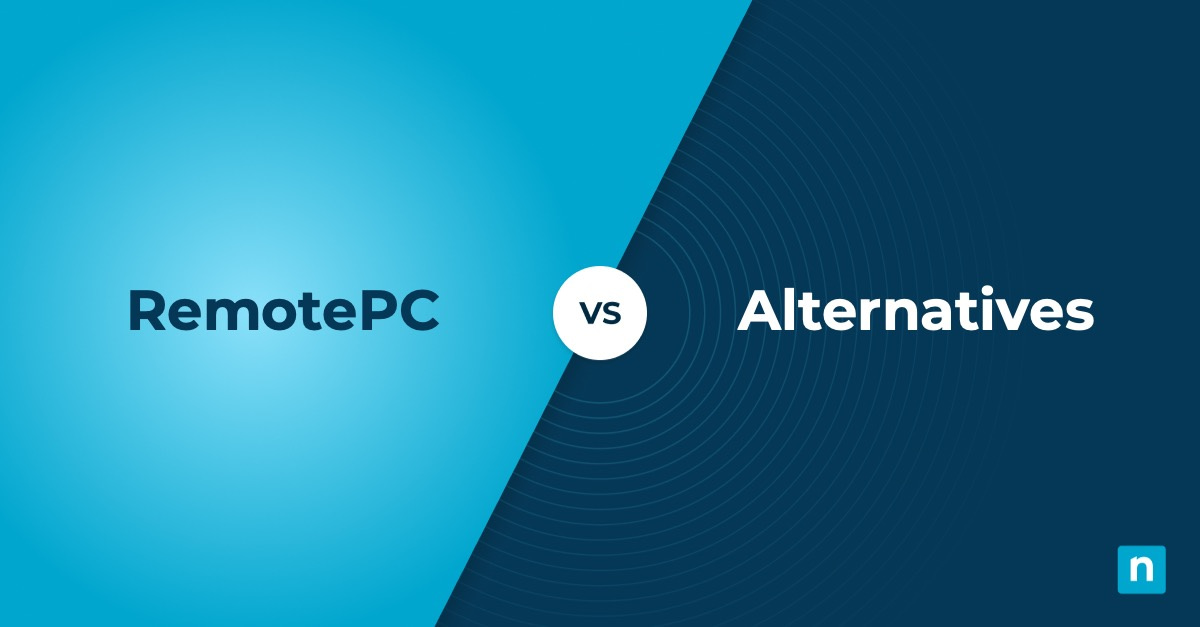In this article, we will discuss the top FileWave Alternatives that best suits your professional needs. Managing devices is paramount to ensuring full control over your IT environment. This task requires an ideal endpoint management tool that guarantees reliable monitoring of all devices your organization handles. That’s why choosing the right endpoint management tool is an essential decision that needs to be well thought out.
FileWave is an endpoint management platform that companies utilize for their device management. The platform helps IT teams throughout the imaging, deployment, management, and maintenance endpoint lifecycle and offers IT teams flexible endpoint management tools for their hybrid IT infrastructure.
However, some IT teams may look for alternatives to manage their IT environment better. While FileWave may serve its purpose for some, it’s always good to look for a device management platform with a feature set that would fit your organization’s needs. In this article, we’ve listed three of the best FileWave alternatives you may include in your priority lists.
1. NinjaOne
NinjaOne is a complete endpoint management solution that offers essential tools to help IT teams streamline device management. The multi-platform device management supports endpoints and devices running on Windows, macOS, and Linux. NinjaOne is also consistently rated #1 on G2, establishing a concrete reputation as one of the best endpoint management solutions in the market.
See how NinjaOne stacks up against the competition in the ESG Economic Validation Report—proof you can count on. Read now.
5 reasons to choose NinjaOne over FileWave
1. Mobile device management
NinjaOne boasts a comprehensive mobile device management (MDM) toolset that streamlines mobile device management and monitoring. The platform’s MDM tool features essential mobile device functionalities, including remote device monitoring, software deployment, detailed device reports, and more, which helps IT teams achieve streamlined workflows.
2. Device tracking
Speaking of MDM features, one of the most significant functionalities technicians look for is robust device tracking capability. NinjaOne offers a highly dependable device tracking tool that ensures endpoint issues are immediately addressed in case they transpire. This also allows IT teams to monitor the location of devices in case of loss and theft, making it easy to perform data wipes or remote locks to mitigate security risks.
3. Support and service
NinjaOne has built a reputation for its stellar support and service, making it a preferred endpoint management solution by IT teams and MSPs. It boasts a 98% CSAT score according to a third-party survey of 380+ MSPs, garnering a #1 rating for support. It also delivers an impressive average response time of 65 minutes, reducing downtime with guaranteed rapid issue resolution.
4. In-depth training
NinjaOne offers efficient ways to onboard new platform users with extensive training. The platform offers live online training, effective instructional videos, helpful webinars, and unlimited onboarding, ensuring every member is equipped and ready to maximize NinjaOne’s comprehensive capabilities.
5. Patch management
Patch management is a cornerstone functionality of every endpoint management solution. While both NinjaOne and FileWave offer patch management capabilities, NinjaOne stands out as the G2 #1-rated solution for this feature, a testament to its exceptional performance. NinjaOne’s patch management is a robust functionality that helps IT teams push critical updates to ensure unparalleled security.
Strengths of NinjaOne
- “Single pane of glass”. NinjaOne’s endpoint management is enhanced by the platform’s “single pane of glass” approach, helping IT technicians perform tasks through a centralized console. This helps IT teams get a complete overview of their whole infrastructure, fostering comprehensive visibility to optimize workflow. NinjaOne allows IT professionals to efficiently manage and monitor everything from devices and networks to servers, all from a unified interface.
- Automation. NinjaOne is also known for its built-in automation, which delivers results when used for essential tasks like patch deployment, endpoint security, reporting, analytics, and more. This gives IT teams the utmost advantage in saving time and minimizing human error when performing important IT tasks.
- Integrations. One of NinjaOne’s top strengths is its integration with top-of-the-line third-party applications. This helps technicians perform their tasks seamlessly while reducing the need to switch from one app to another. NinjaOne offers a wide range of integrations to perform tasks for compliance, ticketing, documentation, and more.
- Incomparable support. NinjaOne ensures that every user gets adequate and fast support whenever needed. Based on a third-party survey of 380+ MSPs, the platform is rated #1 in support and service. NinjaOne also boasts a 98% customer satisfaction score and an average first response time of 65 minutes. This just proves that NinjaOne not only provides support but also prioritizes the quality of service it provides.
Customer story
Advania, a managed service provider in Reykjavík, excels in providing IT support to clients across Europe. Their clients’ satisfaction wouldn’t be possible without NinjaOne. Skuli Axelsson, a project manager at Advania, details how NinjaOne helped the company improve efficiency and streamline workflows.
“With NinjaOne, we can run any script with just one click from the centralized dashboard and we never have to worry that it won’t fully complete.”
Axelsson continued by noting how NinjaOne eases the complexities of providing managed service and bringing satisfaction to their clients.
“Learning how to use NinjaOne is straightforward and deploying new endpoints is just as easy. It’s clear that everyone at Advania is happier using NinjaOne.”
Read more NinjaOne customer stories or check out NinjaOne reviews.
Reviews
- 1,172 reviews (at the time of writing)
- 4.7 / 5 stars
- 211 reviews (at the time of writing)
- 4.8 / 5 stars
2. Scalefusion
Scalefusion is an endpoint management solution developed to provide enterprises with tools to manage and monitor their fleet of devices. The platform can manage hybrid infrastructure and offers support for different types of devices, such as laptops, computers, mobile phones, etc.
Pros
- Straightforward setup. Scalefusion allows for an easy setup process, expediting device deployment and making them readily available for utilization.
- OS support. The platform supports major operating systems such as Android, iOS, macOS, Windows, and Debian-based distributions.
- Lockdown management. Scalefusion offers lockdown management for managed mobile devices, offering a “kiosk mode” capability that restricts access to only authorized apps and functionalities.
Cons
- Navigation. Some Scalefusion users noted their challenges in navigating the platform, greatly affecting workflow.
- Documentation. Scalefusion’s documentation may benefit from improvements to improve the troubleshooting experience for users.
- Licensing management. Scalefusion’s licensing system could benefit from features that cater to businesses with fluctuating device deployments.
3. Hexnode
Hexnode is a cloud-based unified management platform that offers monitoring and management solutions that can be accessed from a centralized console. It provides essential IT features developed for managing and monitoring corporate-owned devices and employs a centralized console to simplify managing various devices from a single, unified platform.
Pros
- OS support. Hexnode offers extensive support for popular computer operating systems such as Windows,macOS, Android, iOS, tvOS, and FireOS.
- Device enrollment. Onboarding devices with Hexnode is easy because they provide a variety of enrollment methods for devices, from zero-touch deployment to user-initiated.
- Remote management. The platform saves IT admins time and effort by enabling them to manage devices remotely.
Cons
- Access to features. Some essential, basic features of typical UEM platforms can only be accessed on Hexnode’s higher-tiered plans.
- Support for Linux. Hexnode currently lacks built-in support for Linux devices, which limits its use by those who manage hybrid environments that include Linux-based endpoints.
- Scalability. While Hexnode is a great solution for small and medium businesses, its features may not fully scale to meet the needs of large enterprises.
Choosing from the best FileWave alternatives
Your next unified endpoint management solution should depend on your infrastructure’s requirements. That’s why the best way to decide on a FileWave alternative is to check each UEM’s features. You can do this by trying free demos or taking advantage of free trials if available.
These collective initiatives should help you make an informed decision when deciding which unified endpoint management solution your team will utilize.

